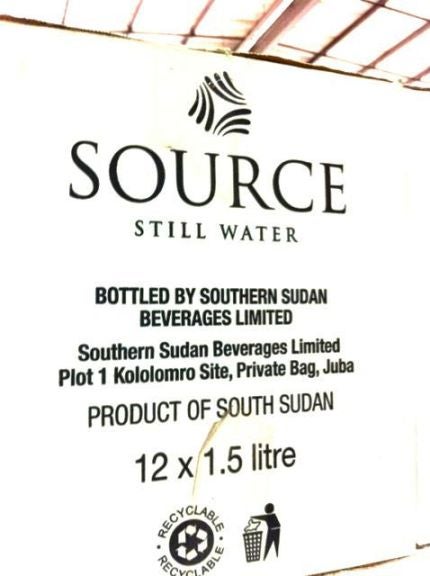
However, we recently saw an exciting example of what the private sector can achieve even under these conditions: the Southern Sudan Beverages, Ltd (SSBL) plant, which produces beer, soft drinks, and bottled water for the local market.
SSBL started production in 2009 after investing $37 million to build the facility; a $15 million expansion is now underway. The plant looks like a modern manufacturing enterprise—with one exception: it is largely self-contained, with its own generators and a treatment plant for the water that is pumped up from the White Nile.
The plant creates jobs and contributes to local development. It employs about 400 people, 380 of whom are South Sudanese. The local community receives free drinking water from the plant and also receives royalty payments through a creative land lease agreement. Once the expansion is complete and an on-site clinic constructed, the plant will provide free health care to employees and dependents. The plant is also a major taxpayer to the South Sudan government which currently funds 98% of its budget from oil.
Apart from the water from the Nile, nearly all inputs are imported from abroad, often from Europe and the Middle East. The Doing Business in Juba 2011 report estimates that importing a container to Juba through the port in Mombasa, Kenya, takes 60 days, requires 11 documents, and costs US$ 9,420. Because of these conditions, SSBL is making efforts to source inputs from local producers and has recently launched a program to purchase cassava for beer production from smallholder farmers.
The plant’s managing director, Ian Alsworth-Elvey, openly shared his experience of running this pioneering manufacturing business. He was adamant that South Sudan is no better or worse than other countries in the region where he has worked. This is supported by the Doing Business study which shows Juba is performing at least as well as the Sub-Saharan average on 5 out of the 10 topics. However, overall, Juba would rank 159th on the ease of doing business compared to the 183 economies measured by Doing Business.
Mr. Alsworth-Elvey acknowledged that there were challenges operating in the new country. A curious difficulty he is facing is the new currency denomination issued by the Bank of South Sudan earlier this year. For its soda production to remain profitable, SSBL needs to increase the current recommended retail price of 1 SSP (approx. US$ 0.30) per bottle of soda. However, since the 1 SSP bill is the smallest denomination available, the only option for the brewery is to double the recommended price from 1 to 2 SSP, which would clearly dampen demand. But with inflation picking up quickly, this problem may not last long.
Inside the SSBL plant
Garrard Rossouw from SSBL explains the process of producing water bottles
The testing lab
Lab technicians examining data from product tests
The final products

The Doing Business ranking for Juba compared to its peers (click on image to see it larger)









Join the Conversation